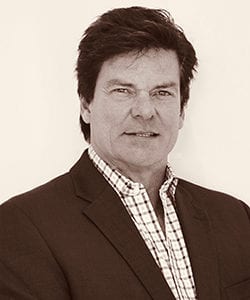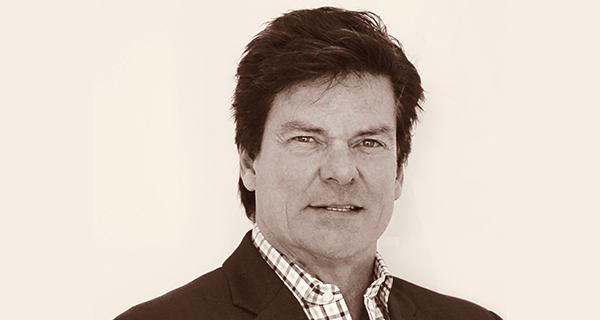Gary Holden is CEO at Pulse Energy Alliance LP in New Zealand and former CEO of Enmax in Calgary.

Gary Holden
What is Pulse Energy Alliance and what does it do?
Holden: Pulse is a private, trust-owned company that competes in the national (New Zealand) energy market for electricity, gas and Internet services. We are thought of as a ‘disruptive’ retailer as we have taken market share from the large utilities by bringing innovative offers to the market.
Perhaps we will be best known ultimately for introducing the world’s first energy contract that includes solar power and batteries for a lower cost than a grid-only contract. We’re still quite small, at $140 million in revenue, but our growth is far and away greater than the more established players.
My mission was to create a new entity based on the experience gained from when I was CEO of TransAlta New Zealand in the late 1990s and from Enmax when we launched the EasyMax program. Having been a key player in designing the competitive model for New Zealand in 1995 and having a go at breakthrough consumer models in Alberta, I felt uniquely qualified to take the idea of consumer choice in energy to a new level. Pulse is that entity and, so far, it’s been going very well.
You published an article on LinkedIn: Is the New Zealand Energy Market the best example in the world? Is it?
Holden: These sorts of claims are always difficult to quantify exactly but the New Zealand market has the most choice (with 22 retailers) and an incredible range of ways in which a consumer can participate. For example, consumers can choose to buy power by the hour, by the week, or for up to 20 years on a long-term contract. They can bundle mobile, Internet and energy, and can add solar and batteries.
We have a very sophisticated big-data environment where energy retailers can receive consumers’ meter readings every hour. Consumers are really in control of who they pledge their data to and government is supportive of as many market ideas as possible.
We have consumer apps that buy power, trade power and swap solar power with other consumers. There’s pricing options that encourage electric vehicles and rewards on-site storage.
The result has been terrific. Consumer demand per household is falling as investment in energy efficiency is rewarded through time-of-use pricing. Most of all, we have a 25-year run of government keeping out the way. They vowed to never provide subsidies or interfere with retail choice in 1995 and have stuck to it.
The proof is there: a full market model delivers the right outcomes if you concentrate on enabling instead of intervening.
Not all New Zealanders love market models, to be sure, but the freedom for companies like Pulse to innovate and bring ideas forward truly must mean that the market is the best model in the world and lower prices and greater efficiency are the ultimate evidence of that.
What can Alberta learn from the New Zealand example?
Holden: You may recall that during my tenure at Enmax we were the relentless, lone-wolf advocate for market models and consumer choice. My goal was to encourage the gradual shift to get to where New Zealand was at the time.
The picture we were trying to paint has never been more important in my view; and my advice to the government today is there’s no time like the present to restart the journey as the rest of the world is moving on to better outcomes.
Alberta has plenty of examples to learn from but probably no better one than New Zealand. The idea of collecting taxes and redistributing them to renewable energy is obsolete – mostly by models from New Zealand and some states in Australia, but also many countries in Europe as well.
The idea of a regulated rate option (RRO) interfering with choice and confusing the concept of energy retail will mean Alberta will not be able to keep pace with the efficiency gained in truly liberated markets. True market models don’t need carbon taxes, solar feed-in tariffs, rebates, incentives for efficiency, rate-base battery storage, rate-base electric vehicle charging or long-term pricing.
It’s harsh to say but in reality, the Alberta market has not evolved since 2010 and is likely to stay trapped in a world of polarized views over the things that are irrelevant to a market model. The metering segment is at least 15 years behind the rest of the world and renewable energy will continue to be subsidized (or not) depending on the political winds.
I’m afraid that a ground-up rebuilding is required – and I can say with some certainty that it will take a good five years to get it going if it were started tomorrow.
What do you think your legacy is as former CEO of Enmax?
Holden: As CEO of Enmax I’m very proud of the leaps forward we created in energy retailing. Just about all retailers offer a EasyMax-style product now. That’s pretty cool. EasyMax early adopters have enjoyed the same energy price (or better) for more than 10 years.
I’m also particularly proud of our early leadership on solar power. Many of the ideas we were initiating have evolved into good solid programs and the government’s support of the program has been great.
I do regret being a whistleblower on the Stelmach government on Bill 50. Not because of their commitment to make me pay personally (which I clearly did) but for the angst it caused Enmax employees at the time. I knew it was the right thing to try to stop the excessive expenditures on transmission and the derailment of the regulatory process, but the price paid by the company and its people was very unfortunate – particularly since I failed to save Albertans all that money; as much of the excess went ahead anyway and people are seeing it come through in escalating power bills now. A long and painful cycle that I wish I could have been avoided.
On the positive side, I’d say the Shepard Energy Centre power plant was the greatest achievement. The coal power producers, who tried desperately to stop the project, could not. This plant was pivotal in the history of the Alberta market as it triggered a lower price regime, forced old coal assets to retire, enabled more wind (which allowed for the new wind request for proposal to add so much more capacity) and consumed heaps of good old Alberta gas.
In the fullness of time, when we see more Shepard-like power plants replace coal, I will look back fondly on the importance of suffering the slings and arrows to get that first one firmly in place.
What do you miss about Calgary?
Holden: I can’t say I miss the weather. I get the option of coming back to Calgary in the summer so I feel I maintain a good connection with my home. But in my quiet moments, I miss my friends and family. Patricia and I were constantly planning dinners and gatherings and we really miss those long-term friends who were always up for a good dinner and long conversations. We miss the charm of the city (folk festivals, Stampede parties and Flames, mostly).
We have replicated this the best we can in Auckland but there’s nothing like the comfort of your birthplace. I’ve had the opportunity to speak at a few conferences in Alberta this past year and had many opportunities to catch up with old colleagues and listen to their struggles. I miss the challenge of playing a role in solving the big issues and hope one day to re-engage with those people in some meaningful way.
For now though, New Zealand is a vast open field of opportunity and if there’s any way I can influence Alberta from afar, I will surely do so.
– Mario Toneguzzi for Calgary’s Business
The views, opinions and positions expressed by columnists and contributors are the author’s alone. They do not inherently or expressly reflect the views, opinions and/or positions of our publication.


